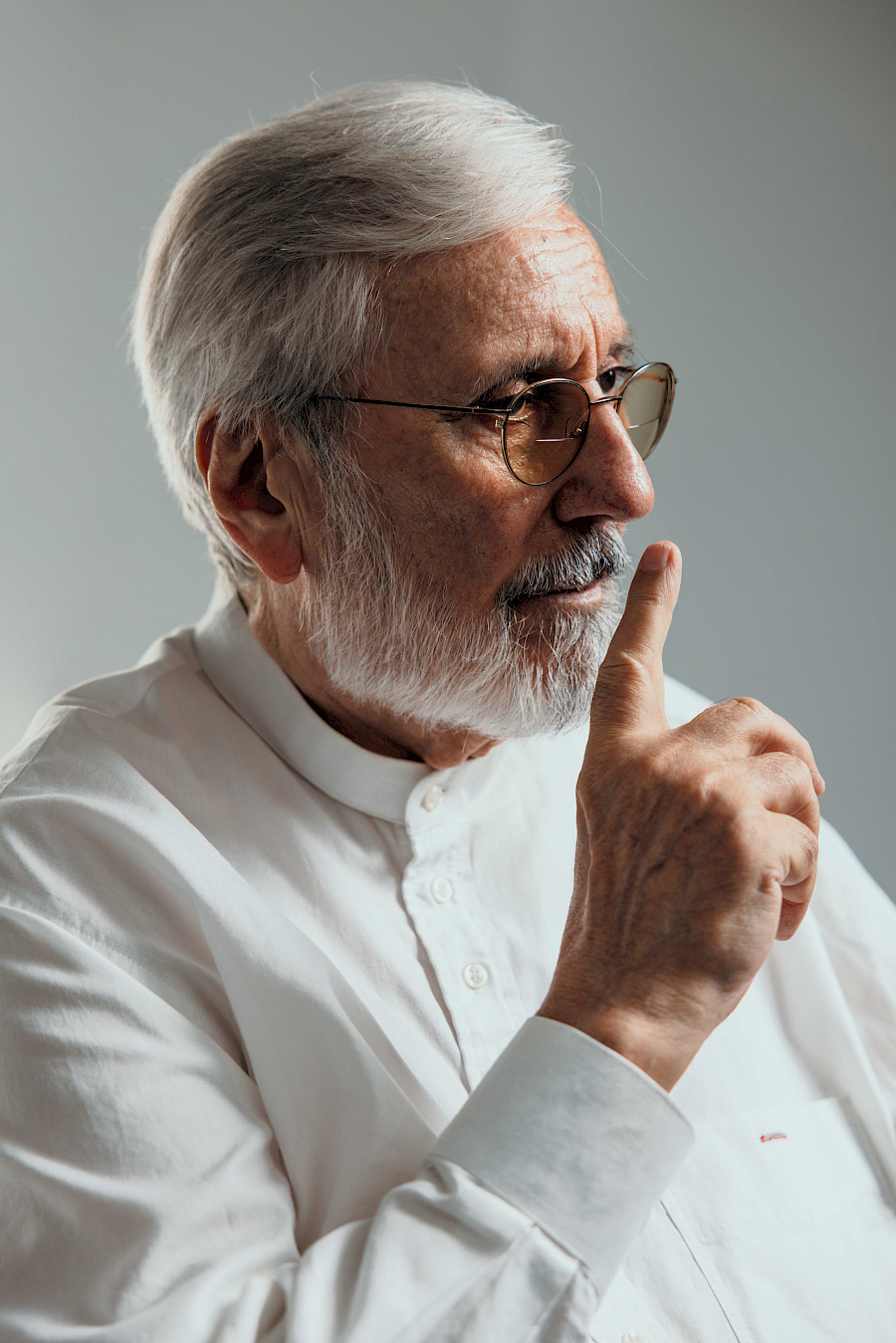
His eye seems to penetrate the soul, an aristocratic figure proves a noble origin. He burst into the world of Soviet cinema to show real life without embellishment. His open intellectual and visual protest against the familiar opened up new horizons. His documentaries broke the foundations and shaped the worldview of the era, and from the search for unusual forms a completely new cinematic language was created. People's Artist of Azerbaijan, film director and screenwriter Ogtay Mirgasimov tells us about his life and creative path.
What episodes of your childhood are especially dear to you?
Mostly related to parents, brothers and other wonderful relatives. My most vivid impressions are when every summer my brothers and I were engaged in gardening at the insistence of my father. He always said that you need to work with the land yourself, no gardeners and workers! Such a sacralization of the land was entrenched in me for the rest of my life and resulted in my attitude towards it as a mother-nurse. This also applies to the Azerbaijani land as a whole. For example, during a recent trip to Shusha, I experienced strange, inexplicable feelings. I tried to get away from everyone on the bus as much as possible, so that no one would disturb my unity with this land after so many years.
What principles did you learn as a child for the rest of your life?
I am the youngest of five brothers and I have always observed examples of talented, successful people. Some of them chose art, and some chose science... My elder brother was a military, reached Berlin, and later followed father's footsteps and became a surgeon. The second was a sculptor, he is the author of the monument to Jafar Jabbarli. The third, Farid, graduated from the Bauman Moscow State Technical University and was sent as a specialist to the Tupolev Aviation Design Bureau. The fourth brother, Rufat, after graduation from the physics department of the Moscow State University was invited to the Joint Institute for Nuclear Research in Dubna. Each of us, at some point, was faced with the need to join the party, but this was unacceptable: in our family, the attitude towards party membership and the communist ideology in general was, to put it mildly, negative. My father refused even Mir Jafar Bagirov`s offer to join the party! He lived according to the canons of his own ideology, for the sake of it he was ready to give up certain benefits. Subsequently, we all made a similar decision. Although, in fairness, it should be said that in my case my career was not at stake, nevertheless, my young years coincided with a period of Khrushchev's “Thaw”. And yet, one day, because of this, they did not let me out of the country...
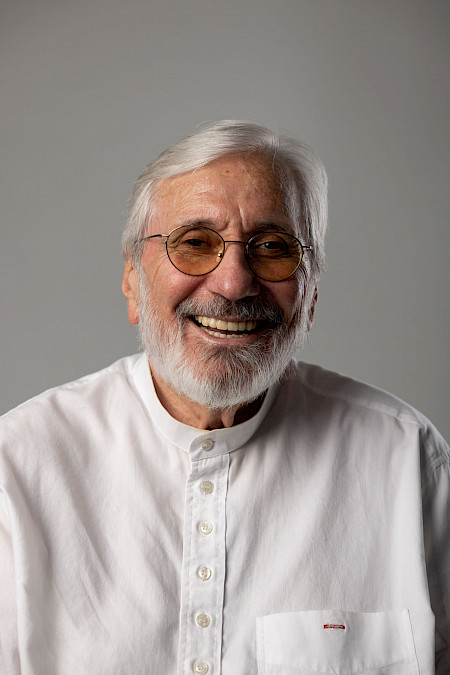 |
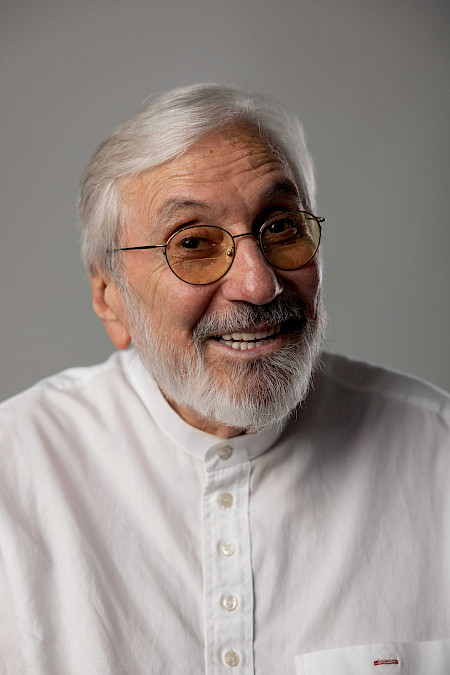 |
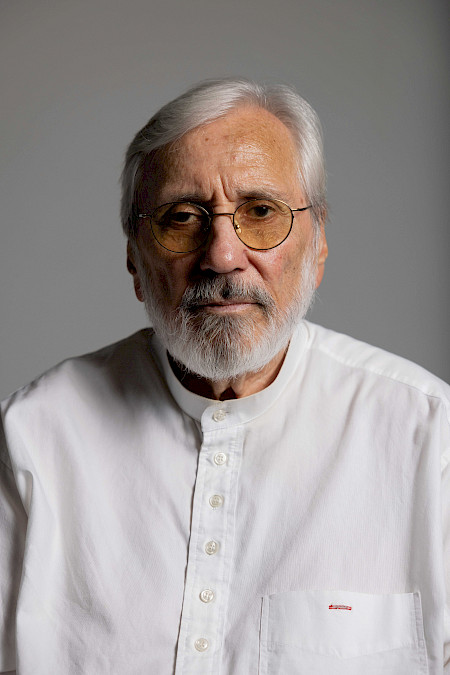 |
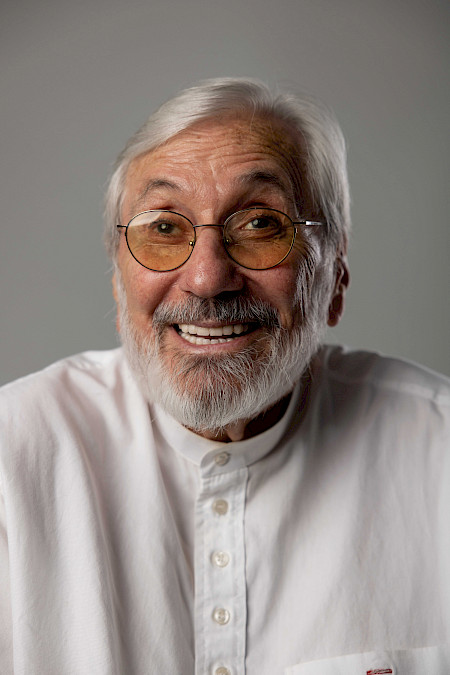 |
You found your vocation early. What was the reason for this?
At the age of sixteen, I got a job at a film studio to gain experience for admission to VGIK. The idea was so conscious and exciting that there could be no doubt. And imbued with the spirit of the film sets, I realized that I would not exchange it for anything in the world. It's impossible to explain. Choosing a profession is something irrational, akin to choosing a life partner.
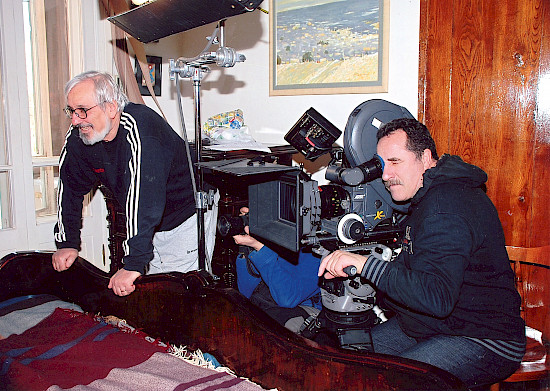
The beginning of your creative path fell on the 60s - a period of cultural boom. Today, the “sixties” are romanticized, portrayed as desperate natures, fearlessly pushing horizons...
Of course, the sixties took their toll, gradually representatives of various fields of art were able to bring something and fix it in people's minds. That decade gave a lot, including to Azerbaijani cinema, and I was a part of this process. But it so happened that my first job at “Azerbaijanfilm” was extremely difficult, even traumatic. After taking the Grand Prix at the VGIK festival for the film “Roads”, I was instructed to shoot a documentary film “The Sea With People”. Then there were certain standards of documentary cinema. For example, women picking cotton were necessarily dressed up in silk dresses, hung with orders, “correctly” arranged for the expressiveness of the frame and forced to smile. Of course, it had nothing to do with documentaryism. My approach to others was alien and incomprehensible. A film without narration, during filming we could catch a frame of one random glance for a long time, all this caused bewilderment. There were complaints that I was shooting nonsense, three cameramen left the set ... They simply did not believe in me. I was only 22 years old, and everyone tried to teach me. After another complaint, the chairman of the cinematography committee decided to personally check how the shooting was going. His verdict was: let him shoot to the end, and then we'll see ... It ended well. The film was shown at the festival, it received the first category, and I was awarded the Lenin Komsomol Prize and an unprecedented amount of money at that time – a thousand rubles. Director Shamil Makhmudbeyov, after watching the film at the artistic council, shouted: “This is a masterpiece! Finally, our studio shot a masterpiece! But I was still very traumatized.
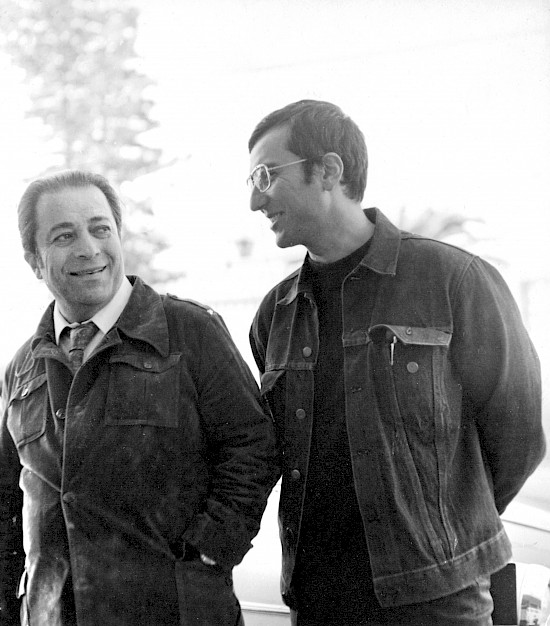
How did it happen that the sixties, a product of the Soviet system, fit so harmoniously into the world cultural context?
My graduation work in 1968 was the film “This is Truth Entering. Composer Kara Karayev”. It remains in the golden fund of Azerbaijani cinema to this day. The technique and method by which I shot this film was used in the Soviet Union for the first time. The film was shown at the festival of Asian, African and Latin American countries, the chairman of the jury was the outstanding French movie reviewer and film critic Marcel Martin, world-famous, I was preparing to enter the VGIK studying his books. And he gave my film the first place. But at that time I had already left and learned about the victory from Arif Aliyev, the secretary of our union. Three or four years later, guests arrived at our film studio, among whom was Marten. After the official meeting, his translator caught up with me. It turned out that he remembers my film and decided to personally congratulate and thank me. I was shocked.
Have there been predictions in your films?
I'll tell you one episode, almost mystical... I have a short author's film “Night Talk”, at first it was called “Nocturne”. The music for it was written by the composer Rafik Babayev. This is, to a certain extent, a continuation or a new round of the 1965 film “Roads” – a metaphorical film about a night full of contrasting events: good is balanced by villainy, the terrible is leveled by the gentle... There was an episode with a column of tanks passing through the night city, and this shot immediately changed to daylight – in the same place on a chair, an old woman was dozing. Because of this scene, I was called to Goskino. Chairman Mammad Kurbanov asked: “What did you want to say with this film? Do you think the Soviet army is a danger to society?” I explained that it was about the horrors of war in general. But the film was banned anyway. The next day I rushed to the editing room and took the tape home, realizing that it needed to be saved. And when many years later, on January 20, tanks entered Baku, I suddenly remembered this episode and shuddered: what did I prophesy?!
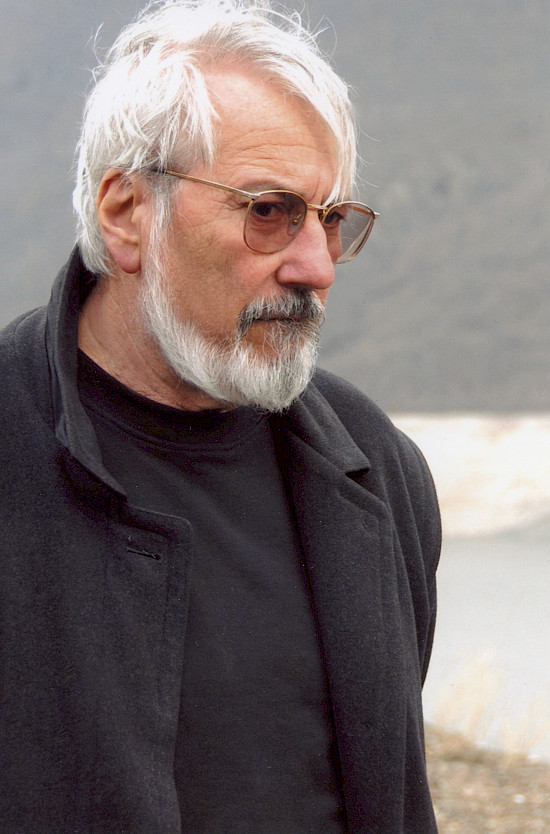
As the saying goes, limits are good for creativity. What time do you think gives birth to more talented people?
I would not associate the emergence of talents with the social characteristics of the era. Stress can give rise to phenomena such as the revival of a nation, but talent comes from God. To give a slightly strange example: if you put one female fish and ten males in an aquarium, then after two generations the sex ratio will be equal, but if you put ten females and one male, this ratio will not change. It's kind of a self-regulating system. Naturally, the emergence of talents does not occur mechanically, as in an aquarium, but society itself reacts to social challenges and cataclysms in the same way and is capable of revival.
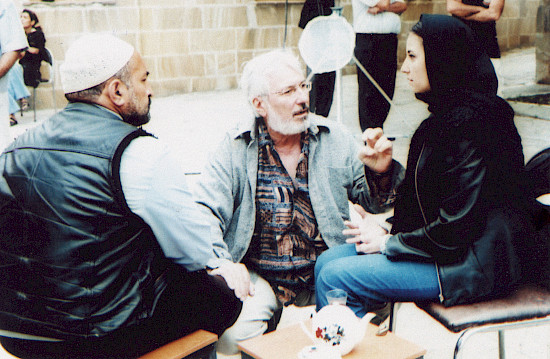
And what challenges does our national cinema face today?
Our cinema worries me. There is a feeling of the deepest crisis... I teach film directing, I observe the works of students, I watch them and often I am faced with an absolute misunderstanding of key values. Sometimes, trying to get to the festival, they deviate from the principles that characterize us as a nation. Several years ago, by order of the President, we developed a concept for the development of Azerbaijani cinematography. I actively worked on it and I know all the details of the work done. By the way, I was the general director of the “Azerkinovideo” for nine years. During this time, the system of state orders was restored, and film production was resumed. At the same time, the State Film Fund of Azerbaijan appeared, the second in the post-Soviet space after the Russian “White Pillars”. I am very proud of this.
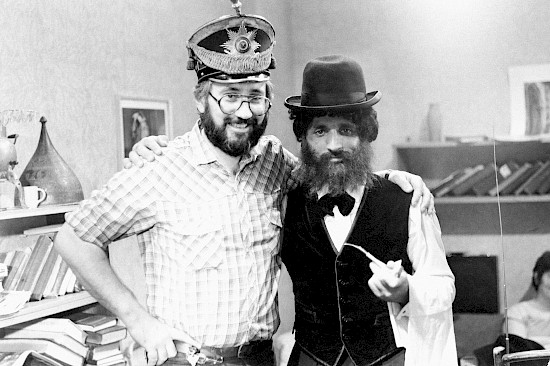
In 2014, your film “To Die Avenged. The Letters from the Past” won an award in the nomination of “Best directing of the full-length feature film” at the International Muslim Film Festival. Is it based on true events?
All characters in the film are fictional. I simply chose a plot related to the eviction of Germans living in Azerbaijan in 1941. It turned out to be a deeply dramatic, cruel story. The film has been to many festivals and received several major awards. Its premieres were held with considerable success in Sweden, Türkiye, Germany, Kazakhstan (sorry for immodestness, but it was just that) ... At the presentation of the Grand Prix of the St. George Tbilisi Festival, a Georgian priest told me: “Your film affirms the highest principles of Orthodoxy”, – although I am a Muslim and did not set myself such a task, but the moral values of all believers on Earth are the same...
Did you have an idea to make a movie about Karabakh?
Not just an idea – I wrote the script for the film “Rising. In the name of the Creator”, approved it and put it into production, even went to Tbilisi to look for actors for the role of Armenians – mother and son. There are good types. There I was introduced to an artist who, in order to participate in the work on this film, refused a trip to Kuwait. But the pandemic slowed down our work, and then the shooting was simply frozen. I wrote a story based on this scenario and published it in “Literary Azerbaijan”, in Russian translation, under the title “The Samurai Syndrome”.
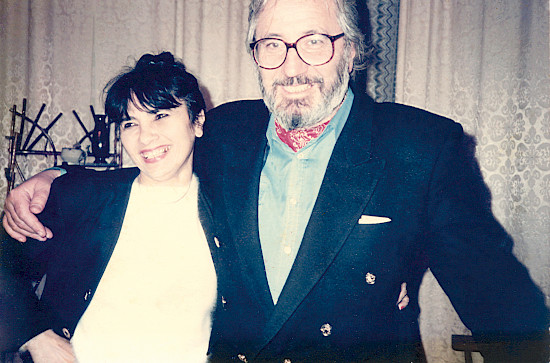
And now I want to ask about something purely personal... The story of your love is incredible and touching! Tell us how it was?
She charmed me. The first thought was: “How unfortunate I am that I should marry another woman!”. But everything turned out as well as possible ... But let Naila narrate about it.
Naila Mirgasimova: It seems that our story began long before our first meeting. As it turned out later, Ogtay's father operated on my mother when she was only 17 years old, and my father met Ogtay's brother at the front. After a fleeting acquaintance at “Torgovaya”, in a common company, we met in Moscow and spent ten magical days there. He invited us to concerts, events, VGIK, the Pushkin Museum – it seemed to me that I was in another dimension. We returned to Baku together – Ogtay arrived at the airport and said that he was also flying, saying that he needed to talk to his mother. Arriving, we got into a taxi, I gave the address – Mirgasimov`s, 1. He looked at me strangely ... By the way, I only found out about who his father was at their house, where he brought me to introduce me to his mother, bypassing all rules. Jeyran xanim was an absolute aristocrat, she wore openwork gloves, which I still keep. As for Ogtay's marriage, she had other plans, but our acquaintance changed everything: she saw and understood something that cannot be expressed in words. And everything was decided.



